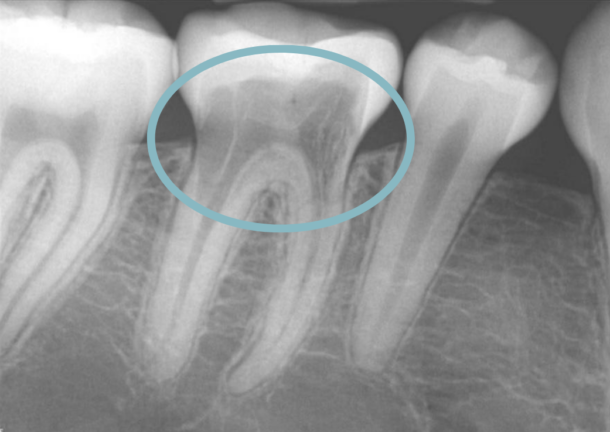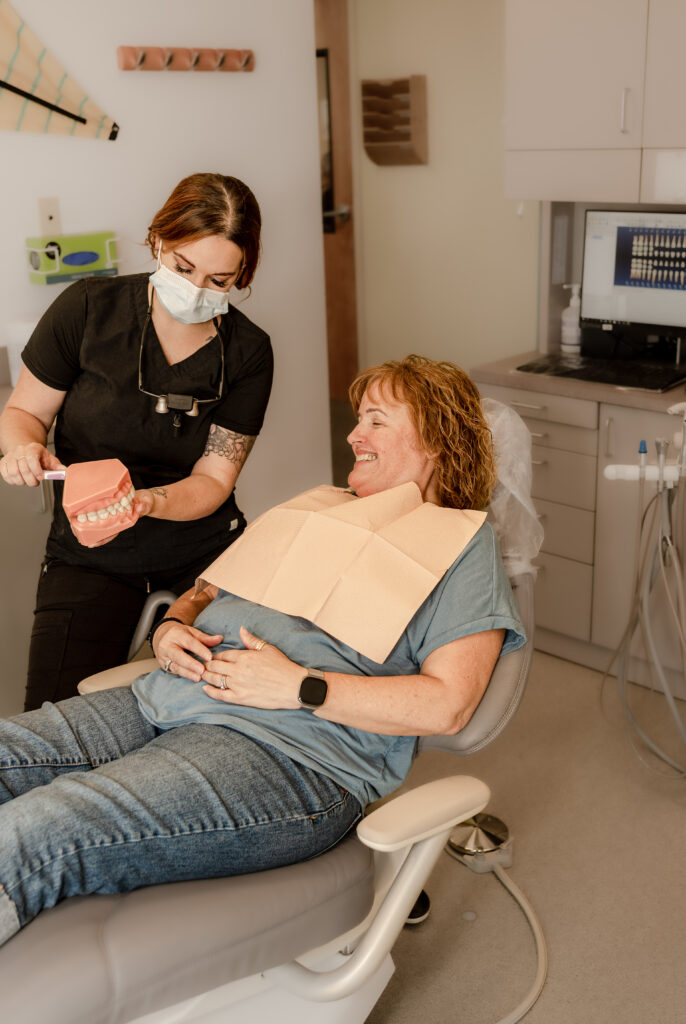Resorption is the process by which a material is reabsorbed. When it has to do with your teeth, this process occurs when the dentin or cementum (outer) layers begin to be absorbed by your body.
Resorption is most often caused by an injury to a tooth. Most commonly this could be due to physical trauma to a tooth or a cavity-related injury. There are two different types of resorption, internal and external. They can be hard to distinguish, but it is important to determine in order to give a more accurate diagnosis for your tooth.

Internal Resorption
As the name implies internal resorption begins inside the tooth. More specifically in the nerve chamber. If caught in the early stages and the tooth has a good prognosis, you can resolve this problem with root canal therapy. The aim with a root canal is to remove the vital tissue that is left that could possibly be feeding the resorptive cells. If the resorption is purely internal the tooth often has a good prognosis after treatment.
External Resorption
If external resorption is suspected the prognosis is usually not a good one. We see external resorption most often happens when trauma is inflicted on the periodontal ligament (the group of ligaments that joins the outer layer of the root [cementum] to the bone supporting the teeth). Because it is not damaging the internal tissue, a root canal will not treat the problem. Depending on the severity of the external resorption, extraction may or may not be necessary.
Tooth Resorption Overall is Pretty Rare
Don’t start to worry about your teeth resorbing just yet though! Tooth resorption overall is pretty rare. It is also usually symptomatic for many years, and may only be detectable on an x-ray. Which is another reason that it is important to get your annual x rays updated.
In the case of external resorption a “wait and see approach may be taken”, whereas early root canal therapy may stop the progression of internal resorption. If you have had a traumatic physical injury to a tooth, it’s a good idea to let your dental professionals know at your next appointment so we can keep an eye on the tooth to catch any early signs of resorption.

References
Colgate – https://www.colgate.com/en-us/oral-health/immune-disorders/what-is-tooth-resorption
Internal resorption: an unusual form of tooth resorption – https://www.ncbi.nlm.nih.gov/pmc/articles/PMC4920650/
Tooth resorption part II – external resorption: Case series – https://www.ncbi.nlm.nih.gov/pmc/articles/PMC3659868/

At Eleven Eleven Dental, we believe your comfort should always come first. You will feel our warmth and compassion as soon as you walk through our doors.